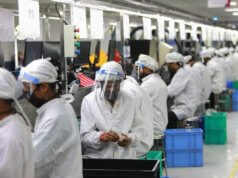 At a time when the nation is importing more than 70% of its crude oil requirements from abroad, failing to sign production sharing contracts even two decades after the bidding, with the consortium is nothing less than an unpardonable offence. Take the case of Ratna and R-series oil fields which was bagged by a consortium of Essar Oil (50%), Premier Oil (10%) with ONGC accounting for remaining portion under the second round of Discovered oil fields bidding in late 1993. The delay is even after CCEA approval which was given in 1996.
At a time when the nation is importing more than 70% of its crude oil requirements from abroad, failing to sign production sharing contracts even two decades after the bidding, with the consortium is nothing less than an unpardonable offence. Take the case of Ratna and R-series oil fields which was bagged by a consortium of Essar Oil (50%), Premier Oil (10%) with ONGC accounting for remaining portion under the second round of Discovered oil fields bidding in late 1993. The delay is even after CCEA approval which was given in 1996.
Ratna and R-series oilfields are a series of discovered fields situated south of Mumbai High basin. The oilfields are estimated to have a proven in-place reserve of around 500 million barrels of oil.
Initially, it was the financial condition of the main operator which had forced the government to drag its feet on awarding the oilfields to the Essar led consortium. Also the government wanted the crude oil from the oilfields to be sold to BPCL and not to the Vadinar refinery of Essar to which the company had agreed.
Another area of controversy is regarding the amount of cess and royalty payable by the consortium. In 1993, royalty was payable at a flat rate of Rs 528 per MT for onshore crude oil (and Rs 520 per MT for offshore crude oil) as against the current rate of 10% of crude oil price. Further, rate of cess has gone up from Rs 900/MT in 1993 to Rs 4,500/MT now. Essar feels that the consortium should be asked to pay the same rate which 11 other marginal fields along with the Ratna R series oil field in 1996 had agreed to pay. If this rule is followed the government will take millions of dollars hit to its revenue.
Further, if one goes by the estimates submitted by Essar led consortium in 1993, the Cost Recovery Limit (CRL) will be just $ 298 million which includes cost recovery for drilling, production and transportation. However, the cost at the current prices will be at least four times the original estimation.
The consortium wants the government to stick to either the cess, royalty and CRL as decided at the time of award or as per the current rates. But the consortium is not in favour of any hybrid mechanism. So the issue is likely to drag on for many days to come.











